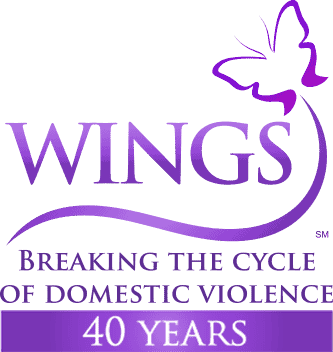Five Harmful Responses to Domestic Violence Survivors
- Posted by Sarah Swiston
- On March 9, 2020
- Chicago suburbs, Domestic Violence, domestic violence agency, domestic violence organization, DV agency, dv survivors, End Domestic Violence, non-profit, northwest chicago, Support dv survivors, WINGS
…And 10 Appropriate Responses.
Domestic violence is a significant issue in our society. 1 in 3 women and 1 in 4 men have been victims of some form of physical violence by an intimate partner within their lifetime. Locally, the Chicago Police Department receives an average of 500 domestic violence calls each day.
However, friends and family can often think of it as a personal problem. Perhaps well-meaning, it can be easy to share uniformed opinions that can be detrimental to survivors of domestic violence. Here are five common responses that are not constructive and could be harmful:
 1. “Why don’t you just leave?”
1. “Why don’t you just leave?”
The most common question survivors get asked and the one behind which immense pain is hidden. Leaving an abusive relationship isn’t as simple as walking away. There are many things a victim has to consider before taking this step such as their children, finances, housing and more. Leaving an abusive relationship is the most dangerous time for a victim.
2. “Relationships aren’t perfect. All couples have problems.”
Absolutely, no relationship is perfect. However, abuse is never part of a healthy relationship, whether this is physical or emotional abuse. This isn’t a couples’ problem, rather one-sided hurtful infliction of power and control. A victim who is in an abusive relationship isn’t seeking perfection, but rather respect, dignity and a life free of abuse.
3. “How can you let him treat you like that? I would never let this happen to me.”
Another harmful response is to blame and stereotype the victim. Domestic violence is a global issue and is not bound to any particular types of people. It can happen to anyone.
4. “He always seems so nice though! He really doesn’t seem that way to me.”
Victims of domestic violence are often embarrassed by what is happening and this is another phrase that doesn’t help the victim’s suffering. Perpetrators of domestic violence aren’t usually abusive in public and perfectly pleasant to everyone else around them. They can be very charming and well-liked by others, which can be blinding.
5. “I never liked him anyway. We all told you something was up.”
Even though you may have sensed something was wrong, abuse can build overtime for a victim. Perpetrators of abuse don’t suddenly become abusive, it’s a slow, blinding and complex process that happens overtime and can be hard to believe.
What is an appropriate response to a domestic violence victim?
Remain calm and remember that “safety” should be a top priority. If the abuser is an immediate concern, call 911. Share validating and supportive statements like the following:
- Resources are available to you such as the WINGS domestic violence hotline: 847-221-5680.
- You are not alone.
- You deserve to be safe – your children deserve to be safe.
- I’m so sorry that is happening to you.
- I’m glad you told me, I would like to help you.
- The abuse is not your fault – you are not to blame for someone else’s violence.
- You have the right to make your choices, including the decision to leave an abusive situation.
- Domestic violence is a crime.
- You have the right to receive protection.
- There are people who are concerned about you and they want to help.
Learn more about domestic violence here.




0 Comments